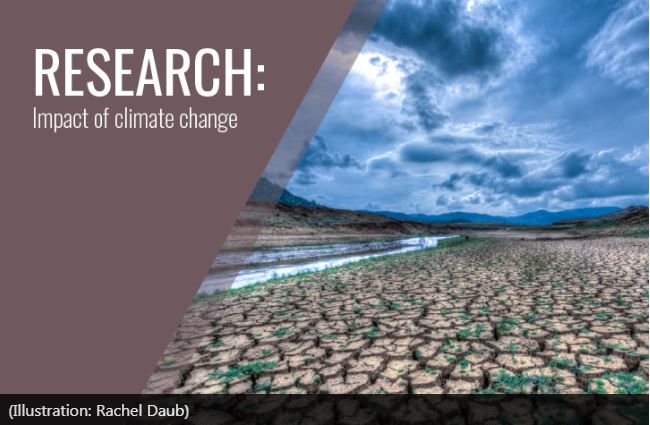How climate change could affect the hotel industry
Data supports the increasing frequency and very real impact of extreme weather events on the hotel industry, so what are hoteliers to do to ensure that their properties survive? Hospitality Management is pleased to share this article from Hotel News Now.

By Jan Freitag@
HENDERSONVILLE, Tennessee—Climate change is real, and will be real for decades to come.
While efforts to increase sustainability measures are laudable—and countries and companies have made real efforts to decrease their carbon footprints—at this point, it’s all a bit too little and likely a bit too late. At least, these initiatives cannot be expected to reverse climate change immediately; at best case, there still could be some benefit over time.
So, what is true in the meantime is that weather patterns will change and become even more severe. How do we know this? Through the National Oceanographic and Atmospheric Administration, the U.S. government tracks the impact of weather events via the insurance claims that the weather caused. In 2018, there were 14 events that cost the insurance industry more than $1 billion.
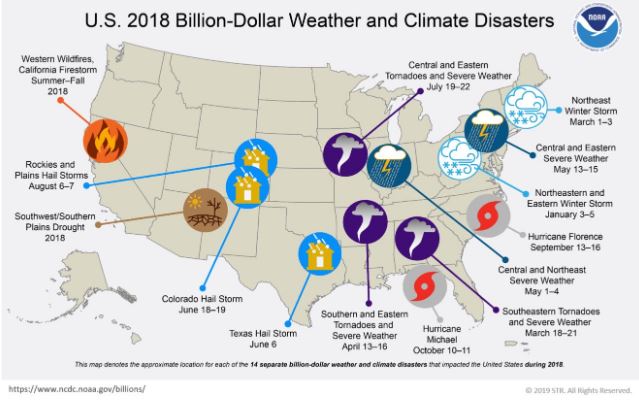
Fourteen events—is that a lot or a little? How does that compare to prior years?
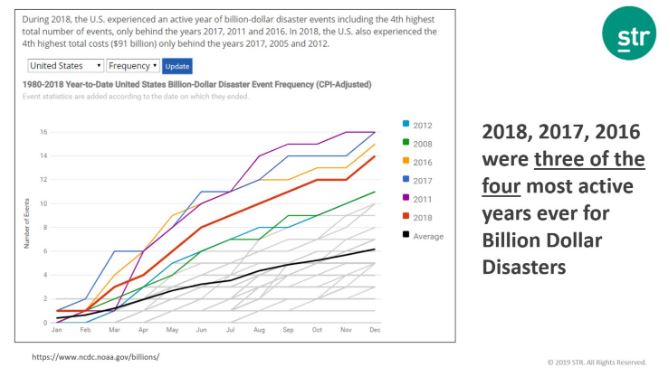
Although not the most active year, 2018—along with 2016 and 2017—ranks in the top four most active years for disastrous weather events. I do not think it is a stretch to say that weather events are getting more impactful.
So, why should the hotel industry care? Because, when these events happen and destroy homes, the displaced people need a place to stay and look for the helping hand of hoteliers. In addition, people fleeing from the impending natural disaster need accommodations, often hundreds of miles away.
In fact, The Federal Emergency Management Agency has a website that lists hotels that are authorized as evacuation hotels. And the impact on the hotel industry in the affected areas is of course very visible in STR data. (STR is the parent company of Hotel News Now.)
The most obvious impact shown by STR hotel data is from hurricanes in coastal states. We can look at the room demand percent change and the actual number of rooms sold in the immediate aftermath of the hurricane to see a massive influx of evacuees.
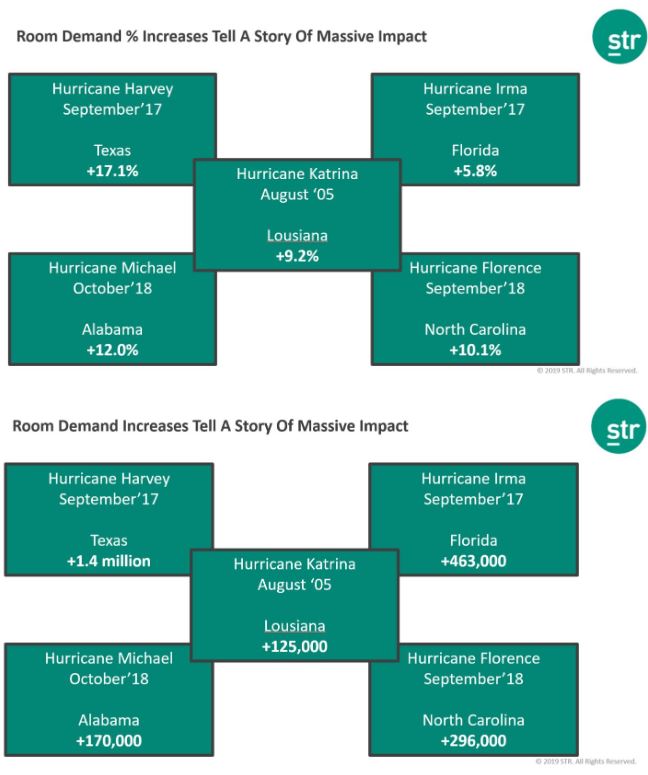
Hotels are acting almost like first responders; they are there in the time of need to provide shelter, food and communication services. But the truth is that hotels are also extremely impacted by weather events, especially flooding. STR Analytics Manager Claudia Alvarado created these powerful maps overlaying our census data with NOAA data.
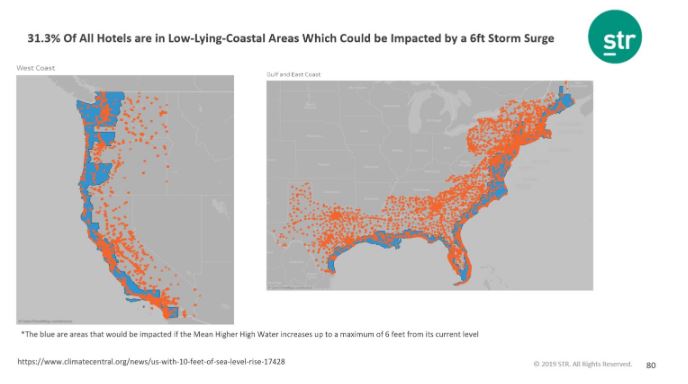
One in three hotels is located in an area that would be impacted by a surge of water six feet above the high-water mark. And, no surprise, 100% of hotels in Hawaii would be impacted in such an event.
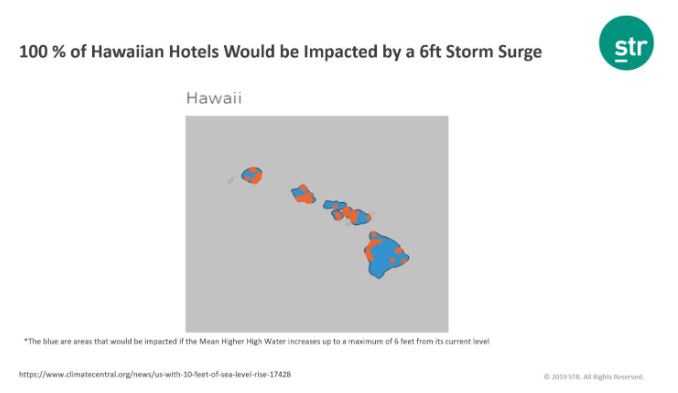
Yes, that is an extreme surge, but extreme weather events are exactly what the U.S. has experienced. As such, hotels and resorts need to be ready to live through weather events and then continue to function when the community around them needs them the most. The term for this: “resiliency.”
So, here are questions for your stakeholders to ponder:
Operations:
- Can your hotel function off-grid for multiple days?
- How do you get access to staff, food and water over multiple weeks?
- How can you retrofit your hotel to be more resilient?
Architecture / Design:
- How do you design with resiliency in mind?
DMOs:
- Are you prepared to assist when your destination becomes a safe refuge?
In addition, the weather events will also impact the value of the property. Here are two of the questions worth considering:
- As insurance rates go up after an event, how does that impact NOI and hence value?
- Is coastal exposure of a portfolio adequately priced?
I feel especially the last question is not currently being addressed at the conferences that I attend. It is easier to just assume that an owner will not hold a property or assume that insurance will cover the business interruption. But, realistically, hotels in lower-elevation areas will probably see their insurance rates increase even if no disasters take place. Insurance companies just look at the data and then draw their conclusions. And so should we.
Climate change is real, and the impact to the hotel industry is measurable. Let’s make 2019 the Year of Resiliency.


